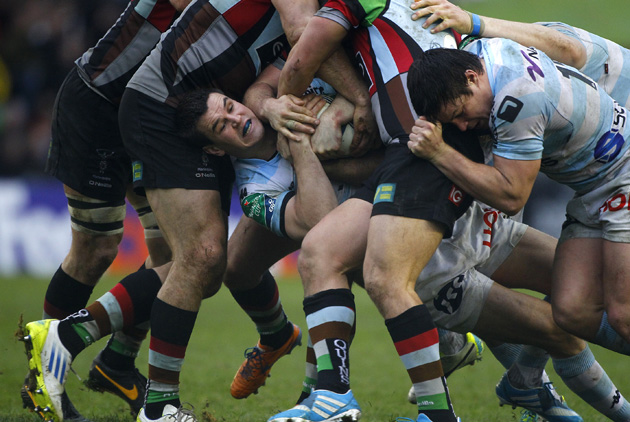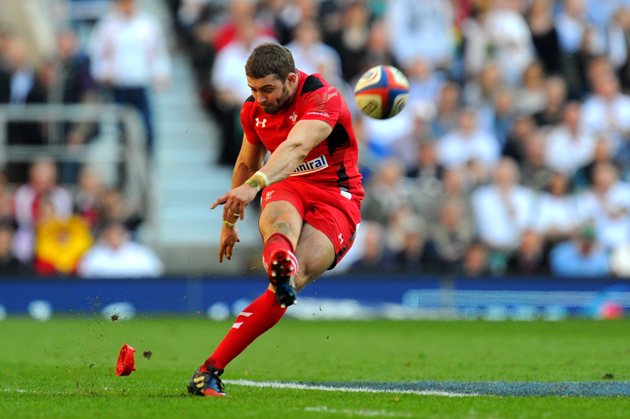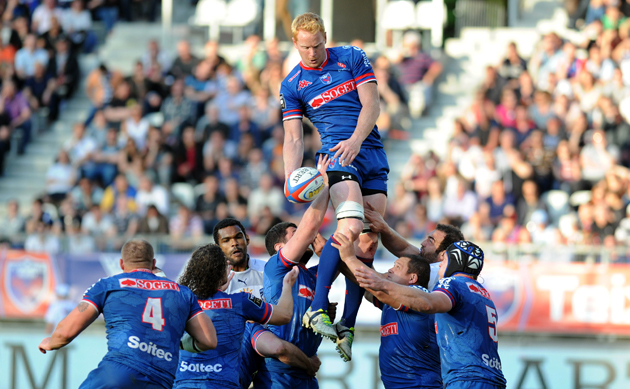Fewer foreign recruits are making their way to French clubs for the coming season – but is this a temporary trend or a long-term change in policy?
THE TOP 14 transfer window has closed for summer. No more big names and no more big-money deals, at least not full-time ones. Clubs can still sign players on short-term deals as cover for long-term injury cases – what’s known in France as ‘medical jokers’.
Given that in January the Ligue Nationale de Rugby (LNR) signed a new five-year TV rights deal with broadcaster Canal Plus for €355m one might have expected a rise in overseas signings. In fact the number of foreign players is on the wane – only 34 recruited to the Top 14 for the 2014-15 season, compared to 58 last season, 48 in 2012-13 and 61 in 2011-12.
The explanation is twofold. Firstly, clubs have one eye on the JIFF (Joueurs Issus des Filières de Formation) rules that for the 2014-15 season will remain the same as last season. So 55% of each club’s squad must be JIFFs – a player who before the age of 21 has spent either three seasons at a French club’s youth academy or five seasons licenced to play in France.
But from 2015-16 the rules become tighter with the 55% figure still in force but also a fine levied against clubs that fail to field a match-day squad containing a minimum of 12 JIFFs. The season after (2016-17), clubs will have to field at least 14 JIFF players for each game. Consequently clubs have reined in their overseas signings to comply with regulations.
The trend this summer has been for clubs to sign young players as ‘espoirs’ as this category is not included in the salary cap. In the last week alone, Toulon have signed Italy U20 prop Simone Ferrari, Grenoble have given a three year contract to New Zealand U20 loose forward Dylan Hayes and Racing Métro welcomed 21-year-old Pumas lock Tomas Lavanini on a three-year deal described by the club as a ‘mixte espoir/pro’ contract.
But additionally next year is the World Cup and for most of the game’s top stars the lure of playing in the sport’s showpiece event outweighs the riches on offer in France. All Blacks, Wallabies and Springboks in particular are staying put to ensure they don’t miss the cut.

Short break: Johnny Sexton, here in the middle of a maul, could return to Ireland at the end of his contract
So don’t be fooled by the diminution in the number of overseas stars coming to France. The drop is temporary and come 2015 there’s likely to be a surge as ageing greats look to finish their careers by building a financial nest egg in France. Already there is talk of Toulon signing Richie McCaw, Dan Carter, Ma’a Nonu and Sonny Bill Williams.
How will this work with complying with the JIFF rules? Most contracts in the Top 14 are two or three seasons so that’s another reason for this summer’s relative calm; players signed in 2012 or 2013 will be out of contract next summer and many, such as Toulon’s Bakkies Botha and Johnny Sexton of Racing Métro, are likely to return home.
So the drop in overseas stars is just a blip, one that will be welcomed by France coach Philippe Saint-André as he sifts through the wreckage of Les Bleus’ disastrous Test series whitewash against Australia.
Number of overseas signings per club 2014-15
Grenoble: 6. Montpellier: 5. La Rochelle: 4. Toulon, Oyonnax, Lyon & Clermont: 3. Brive, Toulouse & Racing Metro: 2. Stade Francais: 1. Bayonne, Castres & Bordeaux-Begles: 0.
Where are they from?
New Zealand: 11. South Africa: 8. Australia: 6. Wales: 2. Fiji: 2. England: 2. Ireland: 1. Italy: 1. Fiji: 1.
What position?
Props: 5. Hookers: 2. Second rows: 6. Back rows: 4. Scrum-halves: 1. Fly-halves: 3. Wingers: 5. Centres: 4. Full-backs: 4.






